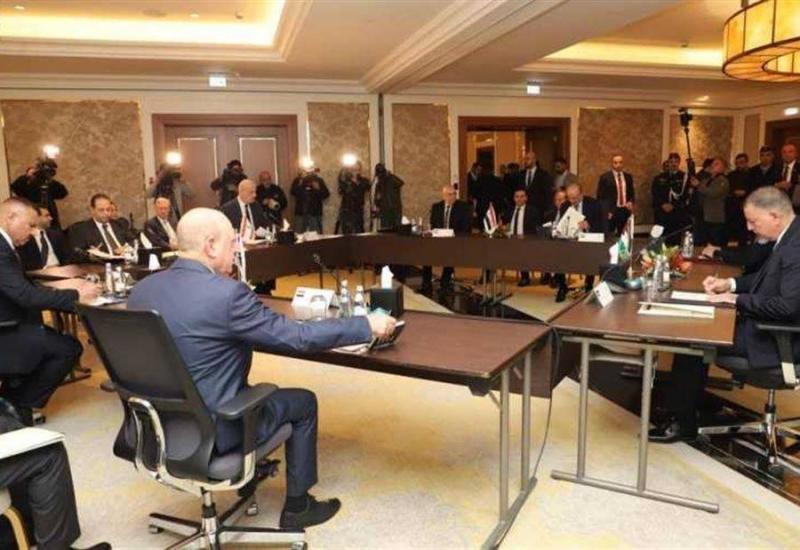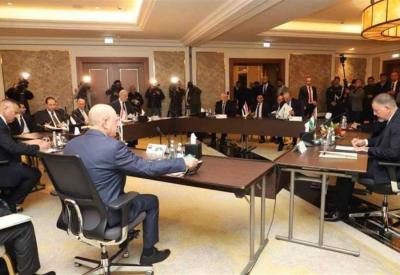Syria's Minister of the Interior, Mohammad Khaled al-Rahmoun, described the atmosphere of the ministerial meeting held yesterday in the Jordanian capital, Amman, to discuss combating the drug crisis as "very positive." In a statement to "Al-Watan" newspaper, al-Rahmoun noted that "an agreement was reached during the meeting to form a cell made up of officers from the drug enforcement agencies in the four participating countries: Syria, Jordan, Iraq, and Lebanon, to ensure immediate action in the event of any information received."
The Interior Minister emphasized that "coordination between these countries and direct communication was also agreed upon to achieve tangible results, especially since the regional countries are determined to rid themselves of this serious problem." He added, "No country in the world can protect its communities without cooperating with its neighbors and without information exchange among them, which was what was agreed upon during yesterday's ministerial meeting in Amman."
Jordan's Interior Minister, Mazen al-Farayah, announced earlier that day the "establishment of a joint communication cell with Syria, Iraq, and Lebanon dedicated to exchanging expertise, training, and capabilities and monitoring information both before and after incidents, as well as the tracking and supervision of shipments leaving these countries to their final destinations, during the meeting of the four Interior Ministers in Amman."
The Amman meeting discussed joint efforts to combat drugs, involving Minister al-Rahmoun and his Jordanian counterpart al-Farayah, Iraqi Minister Abdul Amir al-Shammari, and Lebanese Minister Bassam Mawlawi. The participants examined ways to enhance cooperation to address the common challenges facing the region regarding the drug crisis that threatens societal peace. They also discussed reinforcing security cooperation to ensure the fulfillment of the higher national interests of the regional countries.
Al-Farayah stated in press remarks on the sidelines of the meeting that "a joint communication cell has been established with Iraq, Syria, and Lebanon, which will have liaison officers to track information and monitor shipments to their final destinations in order to combat the drug crisis." He added, "This communication cell is concerned with exchanging expertise, training, and capabilities, and monitoring information, whether prior or subsequent, and supervising the controlled delivery, specifically tracking shipments leaving these countries to their final destinations."
He affirmed that "the ministers agreed on a significant problem regarding drugs, with all societies suffering from this issue, noting that countries are working nationally to deal with this phenomenon. He clarified that the ministers agreed that without joint coordinated efforts among the participating countries, the results will not meet their aspirations."
Lebanon's caretaker Interior Minister Ghassan Mawlawi said during the meeting that "our Arab security is interconnected; our borders are close and intertwined, which necessitates our hard work to protect our countries and communities from cross-border crime in all its forms," according to the Lebanese National Information Agency. He indicated that "Lebanon's position among Arab countries obliges us to ensure it does not become a source of harm for its citizens or neighboring Arab countries and the Gulf." He added, "We continue to firmly control drug trafficking operations through the efforts of Lebanese security authorities," emphasizing the role "played by various agencies," and stressing "the need to continue joint cooperation among our countries to combat this crime."




